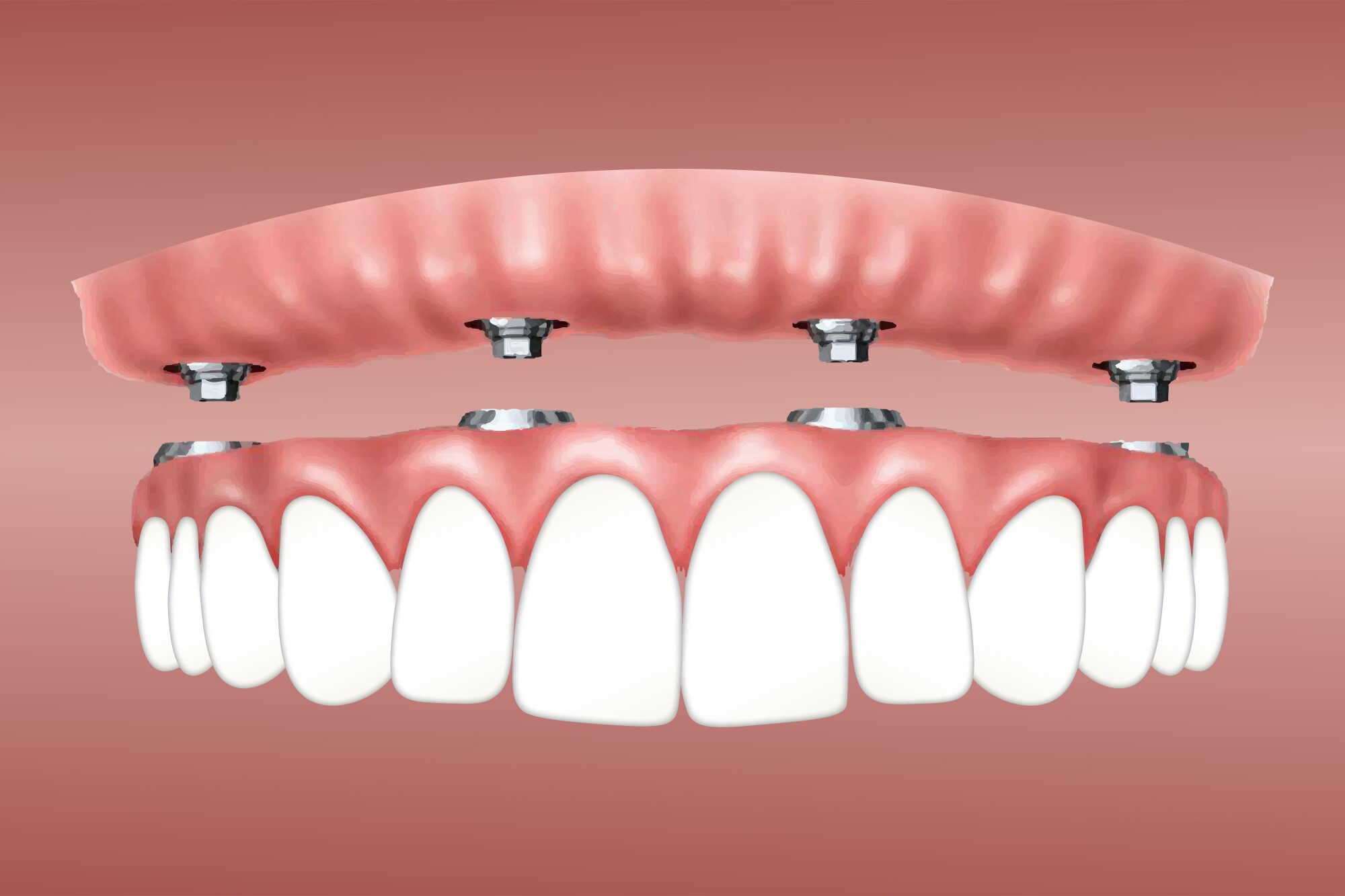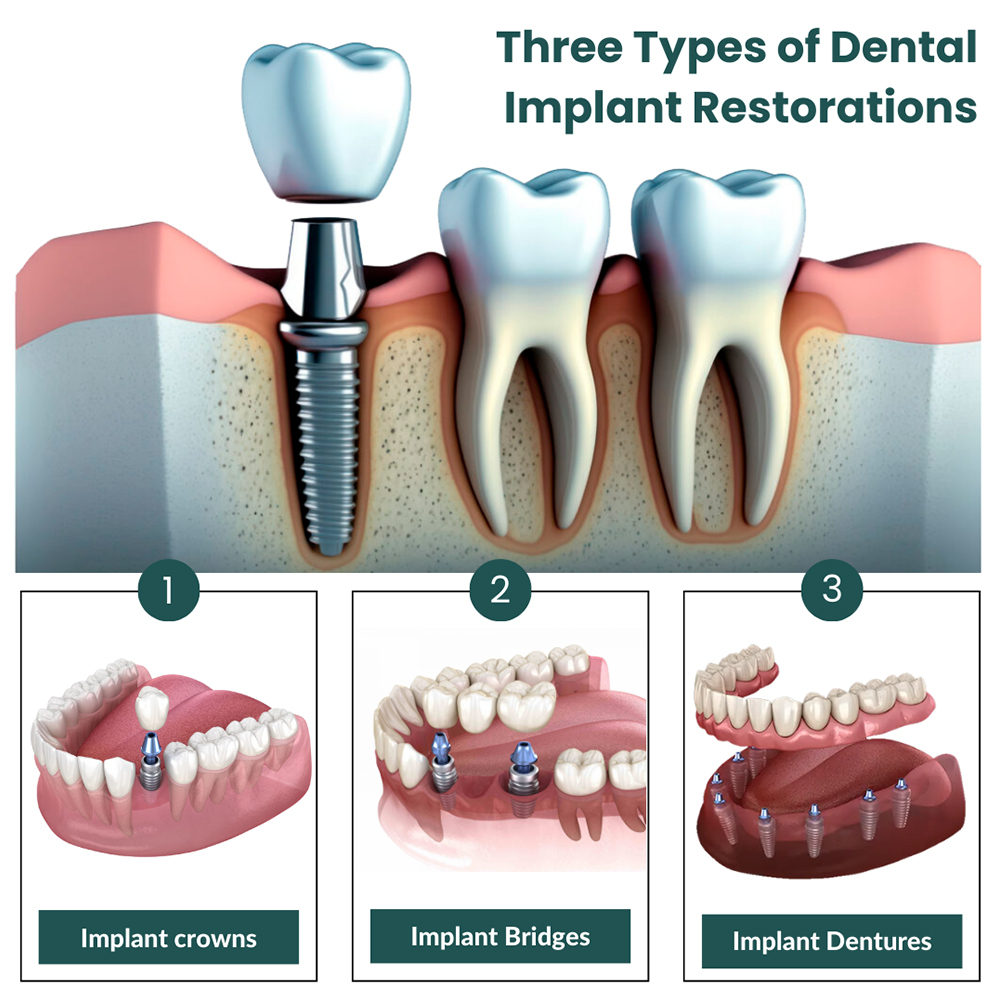The Best Guide To Dental Sense
The Best Guide To Dental Sense
Blog Article
Dental Sense Things To Know Before You Get This
Table of ContentsWhat Does Dental Sense Mean?Dental Sense Fundamentals ExplainedExcitement About Dental Sense7 Simple Techniques For Dental Sense
are medical tools surgically dental implanted right into the jaw to bring back a person's ability to eat or their appearance. They give support for man-made (phony) teeth, such as crowns, bridges, or dentures. When a tooth is shed due to injury or condition, an individual can experience issues such as fast bone loss, faulty speech, or adjustments to eating patterns that cause pain.Dental implant systems include a dental implant body and oral implant abutment and might likewise consist of a joint fixation screw. Dental implant vs bridge. The dental implant body is surgically inserted in the jawbone instead of the tooth's origin. The oral implant abutment is usually connected to the implant body by the joint fixation screw and expands via periodontals into the mouth to support the attached fabricated teeth
(https://dentalsense1.mystrikingly.com/blog/transform-your-smile-with-dental-implants-root-canal-procedures-and)Framework of The Oral Implant System picking oral implants, talk to your oral service provider about the prospective advantages and dangers, and whether you are a candidate for the procedure. Points to take into consideration: Your overall health is an essential consider determining whether you are a good prospect for oral implants, for how long it will take to recover, and how much time the dental implant might stay in place.
Smoking cigarettes may affect the recovery procedure and lower the long-term success of the implant. The healing procedure for the dental implant body may take several months or longer, during which time you typically have a temporary abutment in location of the tooth. the dental implant treatment: Thoroughly comply with the dental health directions given to you by your oral supplier.
An Unbiased View of Dental Sense
Implant failure can cause the requirement for an additional surgery to repair or change the implant system. Restores the capacity to eat Restores cosmetic look Aids maintain the jawbone from reducing because of bone loss Preserves the health of the surrounding bone and periodontals Assists keep surrounding (close-by) teeth secure Enhances high quality of life Damages to surrounding natural teeth during implant placement Injury to the surrounding tissues during surgical treatment, such as sinus opening Injury throughout surgical treatment (for instance, crack of surrounding jawbone) Inadequate feature, such as seeming like the teeth do not attack together generally An experience that the tooth is loosened or twisting in position resulting from an abutment screw loosening Implant body failure (looseness of the dental implant body) because of systemic infection, which might be more probable in clients with unrestrained diabetes due to local infection in bone and gum tissues sustaining the dental implant body as a result of postponed recovery, which might be more probable in people that smoke Difficulty cleaning up the periodontals around the implant, leading to poor oral health Untreated gum condition Post-surgical tingling as a result of nerve impingement or damage Constantly alert healthcare carriers and imaging specialists that you have dental implants prior to any kind of magnetic vibration imaging (MRI) or x-ray treatments.
FDA is read what he said not familiar with any kind of damaging events reported for MRI or x-ray procedures with oral implants. Dental implants systems are generally made from materials that comply with worldwide consensus criteria of the International Organization for Standardization (ISO) or ASTM International. These standards have information of what makes a risk-free product.

A dental implant is a framework that changes a missing tooth. With screw-like tools, the cosmetic surgeon inserts an implant right into the jawbone, and it functions as a support for a fabricated tooth, called a crown. A tool called a joint attaches the artificial tooth to the oral implant. The crown is personalized to fit the person's mouth and match the color of their teeth.
Top Guidelines Of Dental Sense
Some individuals are not eligible for oral implant surgical procedure. It is for oral surgeons to run on individuals with: acute illnessuncontrollable metabolic diseasebone or soft tissue condition or infectionIf these problems are settled, a person can have the surgery. In, dental cosmetic surgeons avoid operating on individuals with: If people with any of the above go through oral implant surgical treatment, there is a higher danger of the implant stopping working.

Oral dental implant surgical treatment is a tailored procedure. Give you time to recover. Connect the post and last crown, bridge or denture.
Next off, your cosmetic surgeon will very carefully put the dental implant into your jaw. If your dental implant is near the front of your mouth, your dental professional will certainly make a momentary tooth for you to wear until you heal.
Things about Dental Sense
Your provider can inform you what to anticipate in your circumstance. Throughout the healing stage, your jawbone ought to fuse to the oral implant. This process, called osseointegration, is crucial for security and long-lasting success. This procedure can take anywhere from three to nine months. In some instances, it may take longer.
As soon as your dental implant heals, your dental practitioner can affix the joint (little port blog post) and your final repair (crown, bridge or denture). This typically takes concerning one hour to finish and may call for a 2nd minor surgical procedure. You shouldn't feel any kind of pain during your oral implant treatment since your company will utilize medication to numb your periodontals.
Report this page